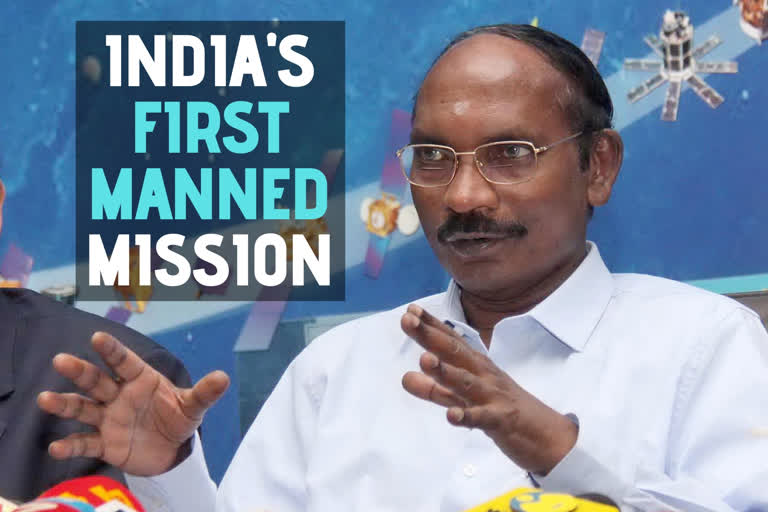Bengaluru (Karnataka):Gaganyaan mission is not just about sending humans to space but an opportunity to build a framework for long-term global partnerships, said ISRO chairman K Sivan here on Wednesday.
ISRO chairman K Sivan said two unmanned missions will precede Gaganyaan in Bengaluru, on Wednesday.
Addressing the inaugural session of a symposium on 'Human Spaceflight and Exploration - Present Challenges and Future Trends,' Sivan said the Gaganyaan mission not only aims at India's maiden human flight to space but also setting up a new space station for 'continuous space human presence'.
"From employment to security (food, energy and so on), most countries have similar goals, and these partnerships can help meet those goals. Also, benefits from possible spin-offs are aplenty. It is in this backdrop that Prime Minister Narendra Modi announced Gaganyaan," Sivan said.
"We are doing all this (Gaganyaan) on three points - short term plan of two unmanned mission in December 2020 and June 2021, followed by human space flight demonstration in December 2021. We have the mid term goal of sustaining the human space programme and continuous space human presence in space on a new space station," he added.
Read: The science behind preparing 'Indian' space food for Gaganyaan astronauts
"New science will emerge from Gaganyaan and enhance our capabilities. A true national project that will include everyone, and not just ISRO, will ensure that we achieve these goals," Sivan said.
"One ISS (International Space Station) may not be enough. Regional ecosystems will be needed and Gaganyaan will focus on regional needs: Food, water, energy security," he said, adding that Isro's human programme is also meant to complement all other existing programmes.
Prof Vijay Raghavan, Principal Scientific Advisor, Government of India, while pointing out that enormous challenges presented by climate change need a co-ordinated effort from the global community, said, "Space collaborations have shown us this can be done."
Read: Microsat-R to Chandrayaan-2, a look at ISRO's satellite launches of 2019
"Although a significant number of people have gone to space and returned, to understand life sciences, there's a need for a more analytical approach which is happening more and more now," he said.
Speaking about PM Modi's target, Sivan said that ISRO already has an operational launcher, re-entry systems, recovery systems (parachute), crew escape system and so on. "The missing systems, human life science and support system, are being developed now," he said.
Noting that the astronauts have been selected from a pool of Indian Air Force test pilots, Sivan said the generic space flight training will commence in India shortly.
Read: ISRO to train 4 astronauts for 'Gaganyaan', here's all you need to know
